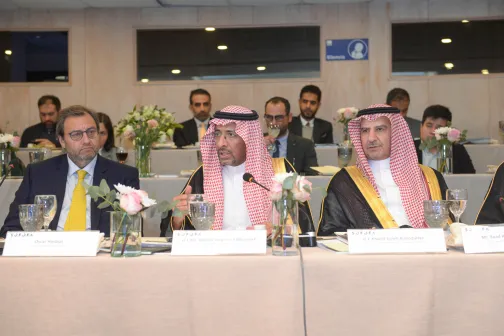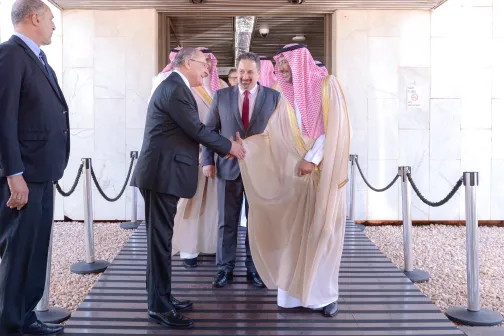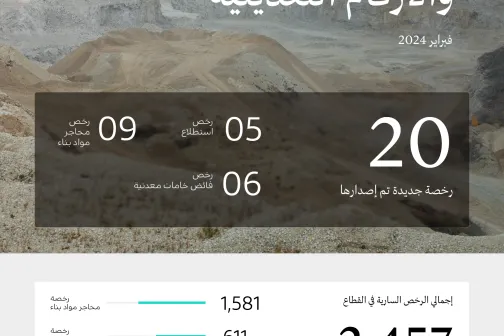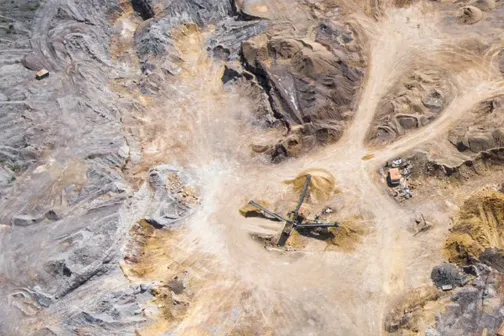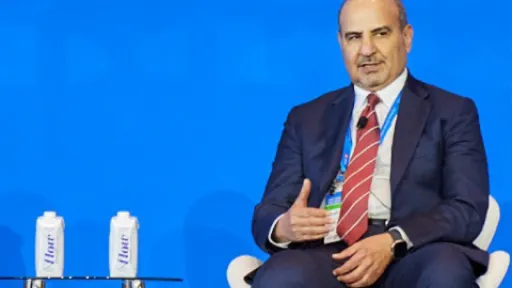
His Excellency the Deputy Minister of Industry and Mineral Resources for Mining Affairs, Eng. Khalid bin Saleh Al-Mudaifer, confirmed that the Kingdom will transform into a major global hub for mineral production and manufacturing, driven by Saudi Vision 2030 and its plans to diversify the Kingdom's economic base, where mining has been identified as the third pillar of national industry.
During his participation in the session titled "Global Minerals, Mining, and Critical Minerals" at the Critical Minerals Conference held in Miami, USA, Eng. Al-Mudaifer explained that the Kingdom has taken several steps to develop the mining sector, including implementing a range of initiatives to create an environment that supports the development of the mining sector. These steps include the issuance of the Mining Investment Law to ease the process of obtaining licenses, reduce the environmental impact of mining operations, maximize benefits for local communities, and launch the Geological Survey Program to provide comprehensive geological data, including 80 years of national geological data. The new data from the survey program was immediately uploaded to the database.
Additionally, he highlighted the Kingdom's efforts to develop the sector, including the launch of the Future Minerals Forum as a platform and marketplace for the larger region, attracting explorers of various sizes through green opportunities and licensing rounds. For the first time, major sulfide belts are being offered to large explorers. Furthermore, the signing of a railway project and multinational shipping at the G20 summit in India will connect India, the Middle East, and Europe through rail and shipping routes passing through Saudi Arabia and other countries in the region. This will create a new and efficient trade corridor that will reduce transit times and costs for companies.
Eng. Al-Mudaifer further emphasized that the Kingdom is working to attract high-quality global investments by providing strong incentives, encouraging institutional investors to fund mineral exploration and production with a long-term perspective. As part of this, the Kingdom launched the Manarah Mining Company in partnership with the national mining company "Ma'aden" and the Public Investment Fund to invest in global mineral assets to secure the minerals needed for the Kingdom's industrial transformation and supply chain resilience. The Saudi Industrial Development Fund (SIDF) is also funding exploration and mining projects for all minerals, covering up to 75% of eligible project costs, and providing financing products for medium and lower-end manufacturing, small and medium enterprises, digitalization, renewable energy, and increasing local content.
He pointed out that the Kingdom’s significant investments in infrastructure development, such as transportation, roads, ports, and airports, will drive investment, enhance economic growth, and create job opportunities. The Kingdom's strategic location as a gateway for trade and investment between East and West also provides foreign investors access to a wide and diverse market in the region. He also mentioned that the Kingdom is located in a part of the world referred to as the "Greater Region," rich in resources, extending from Africa to Central and Western Asia, representing 41% of the world's countries, with a large share of global reserves and resources, including 89% of the world's platinum, 80% of the world's phosphate, 62% of global manganese, 58% of the world's cobalt, and 29% of global uranium. However, the region attracts less than 20% of international investment in mineral exploration, with around 75% of investments going to only 10 countries, none of which belong to the Greater Region. Therefore, the Future Minerals Forum, created three years ago, aims to change this reality by building regional capacities through youth training, creating centers of excellence, and utilizing new technologies.
Eng. Al-Mudaifer noted that the estimated value of the Kingdom's mineral resources is $2.5 trillion, and there are several compelling reasons why the Kingdom is an ideal place to act as an integrator for the Greater Region of 80 countries to support the creation of strong mineral value chains. These reasons include the Kingdom's strategic location connecting three continents, world-class infrastructure with three industrial cities dedicated to mineral industries, its top rank in global connectivity through road networks, a strong and stable government, and the continuous progress the Kingdom has made in the World Bank’s "Ease of Doing Business" ranking.
He also highlighted the critical role of technological investments in the mining sector, stating that technology has always been the solution to meet the increasing demand for minerals. The recent partnership between Ma'aden and Eventus Electric, with access to the Typhoon Geological Survey Technology, will accelerate the exploration of lands in the Kingdom and contribute to achieving the goals of Vision 2030. He added that Arab funds should reconsider their investments in mining, traditionally considered high-risk areas, as this is where minerals are found, and mineral-supplying countries should be viewed and engaged as long-term partners. He acknowledged the challenges faced by the region but emphasized that they can be overcome through partnerships, reducing risks, and investing with a long-term vision. There is a growing willingness for cooperation among mineral-supplying countries, and the Kingdom is leading the way through its investments and regulatory capacity.
Finally, Eng. Al-Mudaifer concluded that all these factors mean the Kingdom presents a unique value proposition in the mining sector, and the success of the energy transition will require a massive increase in the production and processing of critical minerals.
